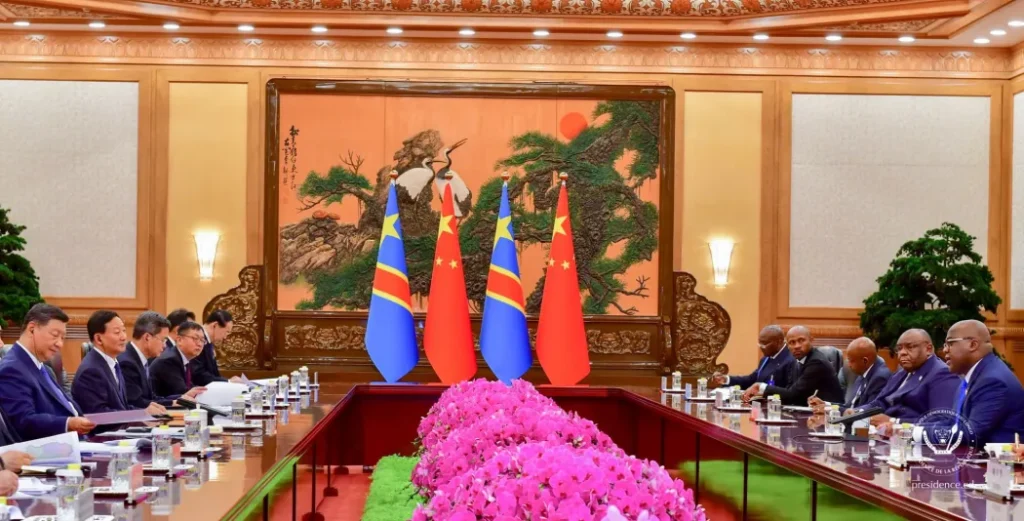
Location: Beijing, China
Summary: During the 9th China-Africa Cooperation Forum (FOCAC) held in Beijing, the President of the Democratic Republic of Congo, Felix Tshisekedi, made a significant statement supporting China’s position on Taiwan. This declaration comes at a critical time, raising questions about its implications for Congo’s international relations, especially with the United States and its allies, given the current global geopolitical tensions.
Main Article: President Felix Tshisekedi’s recent visit to China has drawn international attention, particularly due to his public endorsement of China’s stance on Taiwan during the 9th China-Africa Cooperation Forum (FOCAC). Tshisekedi’s support for the “One China” policy, which asserts that Taiwan is a part of China, signals a strategic alignment with Beijing that could have far-reaching implications.
Is This a Commitment or a Strategic Position? Tshisekedi’s declaration could be interpreted as both a diplomatic commitment and a strategic positioning within the complex landscape of international relations. By supporting China’s position on Taiwan, the DRC is likely seeking to strengthen its economic ties with Beijing, which has become an increasingly important partner for African nations through infrastructure investments, trade agreements, and financial assistance.
Consequences on the International Stage: This stance may have significant ramifications, particularly as the world experiences a new wave of geopolitical polarization. The United States and its allies, who support Taiwan’s autonomy and oppose Beijing’s claims, may view Tshisekedi’s statement as a shift in Congo’s foreign policy. Given that the DRC has existing economic and security partnerships with the United States, this could complicate relations, potentially affecting aid, investment, and diplomatic support.
Impact on Eastern Congo’s Conflict: The endorsement of China’s policy might also influence the dynamics of the conflict in Eastern Congo. The region, plagued by armed groups and instability, is an area where international actors, including the US, have vested interests. Aligning more closely with China could affect how the DRC negotiates support and intervention from Western powers. The US, already concerned about Chinese influence in Africa, might reassess its military and economic involvement in the DRC.
Implications for Global Bipolarization: In a world increasingly divided between US-led Western powers and China-Russia influence, Congo’s alignment with China could place it firmly within Beijing’s sphere of influence. This could lead to a reconfiguration of alliances and partnerships, with the DRC potentially facing pressure to balance its relations with both blocs. The strategic significance of Congo’s vast mineral wealth, critical for global tech and defense industries, will likely intensify this geopolitical competition.
Conclusion: President Tshisekedi’s support for China on the Taiwan issue marks a pivotal moment in Congo’s foreign policy. While it may bolster relations with Beijing and open up new avenues for economic cooperation, it also risks straining ties with the West. The consequences of this move will unfold over time, potentially impacting Congo’s role on the international stage and the ongoing conflict in its eastern regions.




